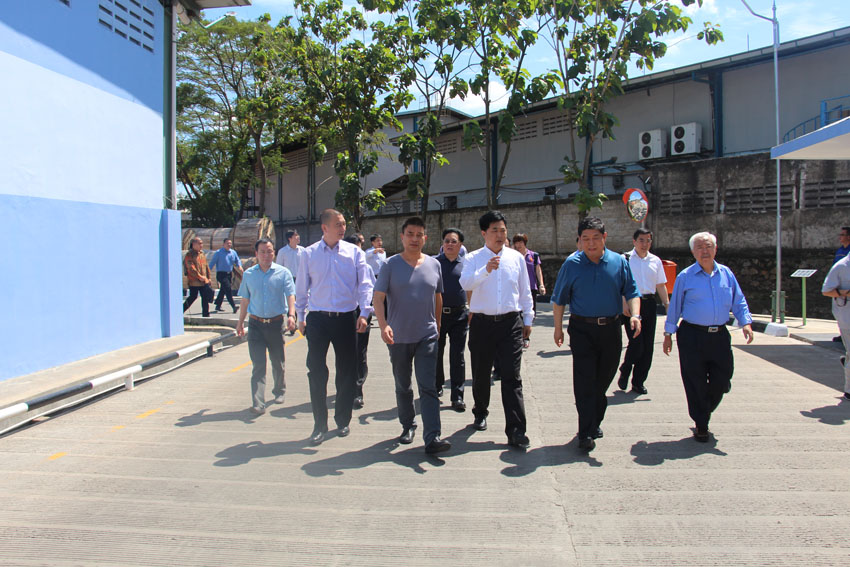Julong News On April 19 to 30, chairman of Julong Group Yang Xuejiang was invited by All-China Federation of Industry and Commerce to participate in the special research of investment and cooperation on the Maritime Silk Road Economic Belt. Quan Zhezhu, deputy minister of United Front Work Development and vice chairman of All-China Federation of Industry and Commerce, headed a group of Chinese private entrepreneurs to visit Sri Lanka, Indonesia and Laos, especially the competent department of industry and commerce, Chinese embassies and local chambers of commerce in the three countries. The Third Plenary Session of the 18th CPC Central Committee advocated accelerating the construction of Silk Road Economic Belt and Maritime Silk Road and opening a new pattern, thus the visit aimed to earnestly implement this strategic deployment. The delegation studied Chinese private enterprises’ situation and problems in the three countries, guided them to make full use of the two different markets and resources, explored the efficient path for transformation and upgrading, furthered the cooperation with local government, chambers of commerce and enterprises, and promoted the regional economical cooperation and development.
During the period, the delegation visited Tianjin Julong Group in Jakarta, Huawei Company in Sri Lanka, New Hope Group in Indonesia and other Chinese enterprises, and exchanged views with Chinese and foreign employees.
After knowing about the operating situation, experiences of localization and main problems of Julong and others’ suggestion to Chinese “going out” enterprises, Quan pointed out that the development of Maritime Silk Road needed cooperation with local people to work for a win-win situation, instead of taking local resources away from other countries. Julong Group carried out the plantation cooperation with local people, brought them considerable income, contributed to local infrastructure construction and improved local living condition. These kinds of measures were right. The “going out” development of corporate was a matter of both economic benefits and culture. Chinese culture was inclusive. Julong’s survival and development was not merely linked to the corporate, but also drove by the economic integration and the state’s diplomacy.
During the visit, the delegation also visited Chinese embassies in Sri Lanka, Indonesia, Laos and ASEAN.

|
